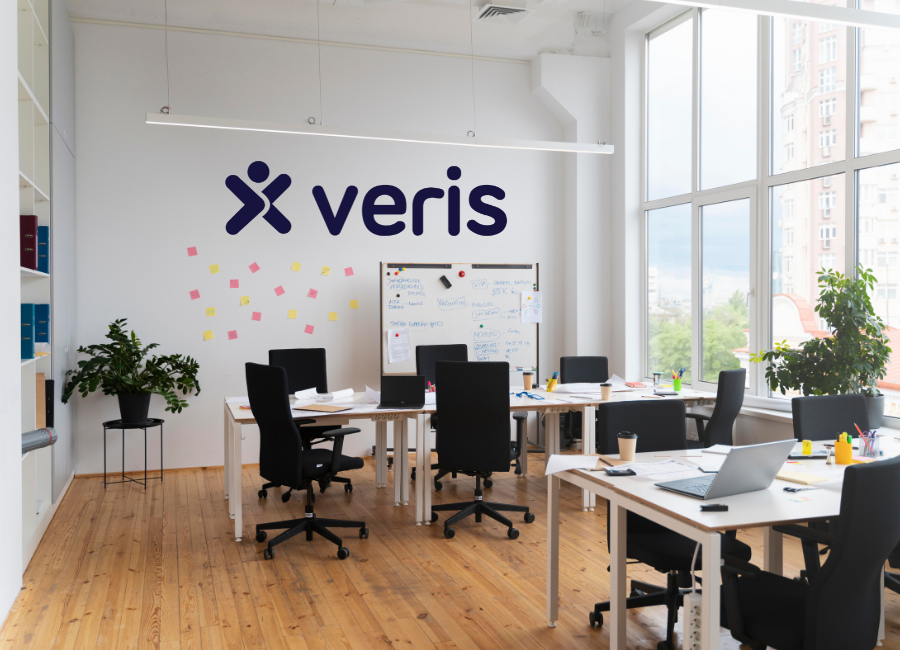Utkarsh Jain, CEO & Co-Founder of Veris:
IT Voice: Can you elaborate on the evolving narrative around modern workplaces?
In today’s rapidly evolving world, the modern workplace is undergoing a profound transformation, driven by three key pillars:
a) Shifting People Expectations: The seismic impact of the COVID-19 pandemic has ushered in a new era of workplace expectations. People now prioritize their well-being in the workplace, seeking environments that place health and safety at the forefront. The emergence of the hybrid work model has gained considerable traction, affording employees the flexibility to seamlessly transition between remote and in-office work. Collaboration-centric meetings have emerged as a linchpin for fostering innovation and cross-functional teamwork.
b) The Rise of AI-Powered Intelligent Experiences: While workplaces have been relatively slow in adopting change, they are poised to become the epicenter of AI-powered intelligent experiences. AI technologies are on the cusp of revolutionizing workplaces, enabling personalized journeys for everyone involved, from employees and visitors to vendors and clients. These intelligent systems will enhance efficiency, productivity, and engagement by tailoring experiences to individual preferences. As AI seamlessly integrates into our workplace ecosystems, it will not only optimize operations but also drive innovation and creativity.
c) Convergence of Cyber and Physical Security: Security is set to take center stage in the modern workplace as IoT and AI technologies become increasingly integrated. The boundaries between cyber and physical security are blurring, resulting in holistic security solutions. From intelligent cameras that can proactively identify threats to integrated access experiences that provide frictionless entry, the focus is shifting from merely keeping unauthorized individuals out to delivering a seamless and secure environment. The modern workplace aims to provide a ‘royalty-like’ experience where security measures are unobtrusive yet highly effective, ensuring the safety and well-being of all occupants.
IT Voice: How does modern workplace management help companies improve productivity?
Modern workplace management as exemplified by Veris, plays a pivotal role in enhancing productivity within companies by focusing on several key aspects:
a) Personalized Journeys: Modern workplace management embraces the concept of personalized experiences. By tailoring interactions, resources, and services to individuals’ specific needs, it fosters a sense of belonging and empowers employees, visitors, and partners to be more productive.
b) Seamless Communication: Effective communication is at the heart of productivity. Modern workplace management facilitates real-time interactions, rich notifications, and efficient messaging. This ensures that information flows effortlessly, enabling teams to collaborate seamlessly and make decisions faster.
c) Digital Twin: The utilization of digital twin technology in modern workplaces optimizes physical workspace utilization. This real-time 3D visualization enables data-driven decisions on space allocation, resource management, and security enhancements, creating a conducive environment for productivity.
d) Unified Systems: Modern workplace management unifies fragmented systems into a cohesive ecosystem. By integrating security and non-security technologies, it simplifies management, enhances efficiency, and empowers organizations to make informed decisions, ultimately increasing productivity.
e) Swift Check-ins: Streamlined check-in solutions, such as ‘Swipe & Go,’ ‘Touch & Go,’ and ‘Face & Go,’ expedite entry processes. This not only enhances security but also reduces entry hassles, enabling a more efficient workflow and improved productivity.
f) Intelligent Insights: Leveraging advanced AI, modern workplace management transforms data into actionable insights. These insights empower organizations to operate intelligently and responsively. By optimizing processes, identifying trends, and predicting needs, businesses can boost productivity.
IT Voice: What prompted you to collaborate with Lee Odess, a notable name from the access control industry?
As the host of the “Work The Talk” podcast and newsletter, I’ve had the privilege of engaging with numerous leaders in the world of work and workplaces. During one of my podcast episodes, I had the distinct pleasure of hosting Lee, and I must say, I was absolutely blown away by his profound insights and unparalleled industry experience. Lee’s perspective on access control is nothing short of visionary. He emphasized that every system facilitating gated entrances, whether in the physical or digital domain, essentially constitutes a form of access control. It’s a perspective that goes beyond hardware and dives into the very fabric of how employees interact with their workspace.In an era where modern workplaces are evolving towards greater intuitiveness and seamlessness, Lee’s vision is exceptionally relevant. We’re talking about a staggering $70 billion opportunity within this industry, and Lee is undeniably the global authority who comprehends the full extent of this potential. The collaboration between Lee Odess and Veris, especially on the occasion of Lee’s maiden trip to India and Veris’ inaugural event in the country, was not just a logical step; it was an imperative one for the workplace community. Together, we’re poised to unlock the future of workplace experiences, where access control seamlessly integrates with the broader landscape of workplace management. It’s an exciting journey, and I’m thrilled to be a part of it.
Lee Odess, CEO of Access Control Executive Brief
IT Voice: What are the implications of the coming together of workplace management cloud and access control?
The coming together of workplace management cloud and access control has significant implications. First, think about this: IT Voice is asking me about access control! It clearly shows the convergence that is amongst us. It also allows for the integration of access control systems with cloud-based workplace management platforms, resulting in enhanced efficiency and convenience. By leveraging the power of cloud first architecture, organizations can streamline their access control processes and centralize their management and monitoring. This integration enables seamless coordination of various workplace functions, such as reservation of meeting rooms, automation of parking payments, and even food purchases. It also facilitates the implementation of advanced technologies like facial recognition and mobile access, further enhancing security and operational workflows. Ultimately, the combination of workplace management cloud and access control provides organizations with a comprehensive solution that improves productivity, enhances security, and optimizes resource utilization in the modern workplace.
IT Voice: What specific technologies do you plan to integrate through this collaboration?
The collaboration between workplace management cloud and access control would have a significant impact on the overall market by increasing the total addressable market due to the ability to add more value to the organization’s selecting and purchasing these systems. When the two disciplines are siloed, the ability to add exponential value can’t be realized. So what used to be a nice to have, turns to a must have. By integrating access control systems with cloud-based workplace management platforms, organizations can achieve enhanced efficiency, convenience, and centralized management that was impossible before. This integration allows for seamless coordination of various workplace functions, such as meeting amenities booking, hot desking, and even the purchasing of my new favorite coffee, filtered coffee. All by a touch of a button or even better, seamlessly because you have arrived. It also enables the implementation of advanced technologies like facial recognition and mobile access, further enhancing security and operational workflows. With a comprehensive solution that improves productivity, enhances security, and optimizes resource utilization, the collaboration between workplace management cloud and access control would drive the adoption and growth of modern workplace management solutions in the market.









